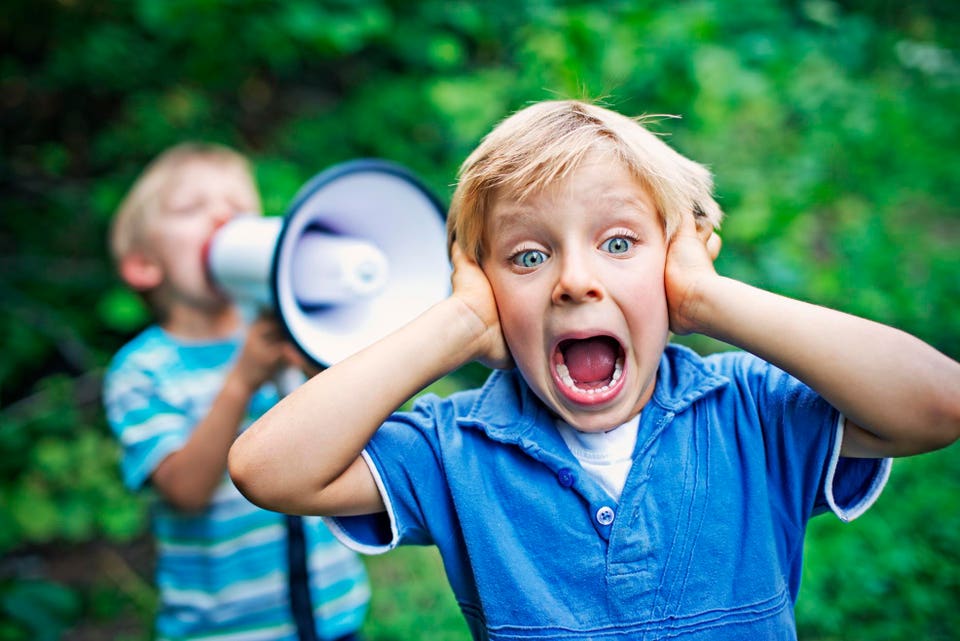Forbes Innovation Healthcare Noise Exposure Can Cause Permanent Damage. Children Are At Highest Risk Nina Shapiro Contributor Opinions expressed by Forbes Contributors are their own. Dispelling health myths, fads, exaggerations and misconceptions.
Following Oct 26, 2023, 05:12pm EDT | Press play to listen to this article! Got it! Share to Facebook Share to Twitter Share to Linkedin Little boy covering his ears while exposed to loud noise getty A policy statement published by the American Academy of Pediatrics (AAP) this month is raising awareness about the damage that noise exposure has on both children and adults. The statement reviews various types of noise trauma, and how it affects not only the ear and hearing, but also how this exposure can impact well-being and mental health. When we consider exposure to sound, we look at several factors.
These include loudness, or decibels (dB), frequency, or pitch, and duration, or how long it lasts. Historically, there are well-known occupations and avocations that are high-risk noise exposure endeavors, including working in factories, airport tarmacs, or in military firearm zones. Most of these occupations now provide noise protection devices, but even with these, the ears can suffer exposure and damage.
Recreational exposure to loud music with amplifiers, either as a musician or as an audience member, is also a known risk factor for noise damage. Proximal exposure to fireworks can cause permanent damage, especially when used by individuals not professionally trained in firework safety. Rock Band with Guitarists and Drummer Performing at a Concert in a Night Club.
getty Higher decibel levels and longer duration lead to the most damage, whereby the tiny cells of the inner ear are either temporarily or even permanently injured, leading to temporary, or more commonly, permanent, hearing loss and even tinnitus (ringing in the ear), which also may be irreversible. In many cases, only part of the hearing apparatus is damaged, and for this reason may go unnoticed for years, until a critical degree of hearing is lost. And unlike hearing loss due to ear infections or ear wax, hearing loss with nerve damage from long term noise exposure cannot be repaired.
Hearing aids act to amplify sound, but the hearing levels themselves cannot be recovered. With increased use of headphones and now ear buds with personal listening devices, we have seen a substantial rise in permanent hearing damage to the ears of adolescents. There are now apps available where teens (or adults) can self-monitor their daily noise exposure, based on both loudness and duration of exposure.
Newer noise-cancelling headphones have also helped mitigate this issue, as the listener doesn’t need to continuously raise the device’s volume in order to block out background noise. MORE FOR YOU Leak Reveals Joe Biden Could Be About To Issue A Game-Changing Executive Order That Could Spark Bitcoin, Ethereum, XRP And Crypto Price Chaos Multiple People Dead And Dozens Wounded In Mass Shootings In Maine Suspect Still At Large DOJ Accuses Trump Of Threatening Mark Meadows Asks Judge To Reinstate Gag Order Teen listening to music getty For younger children, the noise exposure to premature and critically ill newborns who spend their first weeks to months in the neonatal intensive care unit has been well documented. A hospital setting, with noise from ventilators, oscillators, alarms, personnel, visitors and procedures creates continuous noise with nearly no options for silence or even quiet.
These exposures lead to not only potential ear damage, but can also impact sleep cycles, blood pressure levels, and neurologic development in this vulnerable population. Premature baby in NICU getty In addition to ear damage and hearing loss, chronic noise exposure can lead to increased stress levels, sleep disturbance, poor learning and focus, and inattention in both children and adults. Hearing loss in adult s is the third most common chronic condition, and is associated with cognitive decline, social isolation and increased progression of Alzheimer’s Disease if it goes unrecognized and treated.
As I wrote for Forbes , addressing concerns for hearing loss in adults by use of hearing aid and/or assistive listening devices can be associated with reduction in neurocognitive issues in the elderly. Parameters for limits of both loudness level and duration of noise exposure are becoming more readily available. Public awareness of the unseen impact of noise exposure on multiple aspects of health will hopefully lead to more mitigation measures for all age groups and populations, especially those vulnerable to learning delays and cognitive decline.
The following video provides useful information on the impact of noise exposure, as well as some tools to minimize damage: The AAP Policy Statement on “Preventing Excessive Noise Exposure” emphasizes that this is, indeed, a preventable problem. Personal listening devices tend to cause the most widespread damage to children and teens. The “dose” of exposure can be measured by both loudness and duration— the louder the sounds, the shorter exposure time needed to cause damage.
But longer periods of exposure of even lower volume sound can also cause damage. Primary care physicians, especially those treating children and teens, should incorporate noise exposure risks during well care visits. On a larger scale, more action is needed on a federal level to protect the public from unnecessary noise trauma.
Follow me on Twitter or LinkedIn . Check out my website or some of my other work here . Nina Shapiro Editorial Standards Print Reprints & Permissions.
From: forbescrypto
URL: https://www.forbes.com/sites/ninashapiro/2023/10/26/noise-exposure-can-cause-permanent-damage-children-are-at-highest-risk/
